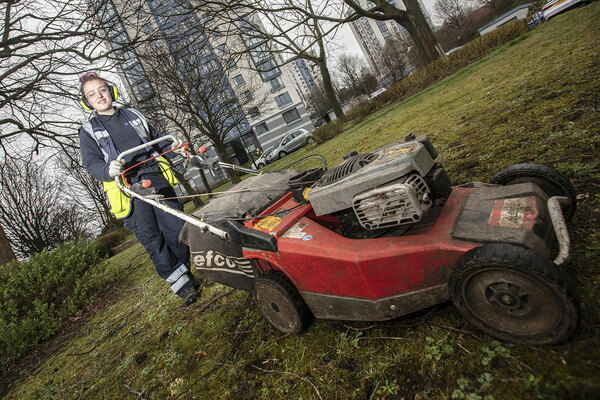You are viewing 1 of your 1 free articles

Overcoming the barriers to hiring apprentices
There are solutions out there to help landlords benefit from apprenticeships, writes Corrina Hembury of housing association-owned training provider Access Training.
Since the introduction of the apprenticeship levy in 2017 there has been a surge of interest by employers in how to engage with apprenticeships but, unfortunately, many are deciding there are too many complexities and barriers to overcome to integrate them successfully into their business.
At Access Training, we are in the unique position of being an independent training provider co-owned by two social housing groups – Futures Housing Group and Nottingham Community Housing Association.
This gives us a real insight into the huge benefits of engaging with apprenticeships in this sector. They are a great way to support succession planning, improve motivation and retention of staff while developing a variety of skills across the organisation.
Through our experience with both our co-owners and other social housing groups with which we work, we have identified the three main barriers they experience when trying to engage with apprenticeships:
- The requirement for 20% off-the-job training. Many employers expect this to mean ‘day release’ and struggle to see how they can release learners and fit this condition into busy workloads.
- The administrative burden to manage apprenticeships and the levy account. Understanding the apprenticeship levy, the digital apprenticeship service, checking learner eligibility for funding and aligning with existing organisational development plans can all seem like an insurmountable task.
- Confusion regarding the apprenticeships on offer and whether they can match the skills needed in social housing.
Housing associations and local authorities have wide-ranging skills needs ranging from housing management and customer service to housing maintenance and even social care.
Trying to find an appropriate apprenticeship to match your needs can feel like a minefield.
Fortunately, there are solutions to these barriers if organisations invest some time in partnering with the right training providers, whether that be an apprenticeship specialist or a local further education college, who can work with you to understand your needs and design the right solution to meet them.
Let’s look at the solutions in turn:
- There are several ways to meet the 20% off-the-job training requirement – I think it’s easier to reverse the description and think in terms of what activities are being done while a staff member isn’t carrying out competent, productive work. Inductions, work shadowing, attending conferences, self-study, reading new policies, taking part in one to ones or appraisals are only some activities that improve the skills and knowledge of an individual and are therefore eligible. There are also no restrictions on when and how the training must take place – it could be front-loaded or split throughout the programme; delivered via e-learning or face to face, or a combination planned to fit in with your needs.
- Finding a high-quality training provider, with expertise in apprenticeships, is the key to helping you through the red tape. They will work alongside you to make the most of your levy, give guidance on funding and the digital account as well as handling all aspects of eligibility and compliance with funding rules.
- The housing-specific apprenticeships have already transitioned to standards and have the following titles Housing/Property Management Assistant Level 2, Housing/Property Management Level 3 and Senior Housing/Property Management Level 4. If you have other roles in which you would like to support with training use www.gov.uk/apply-apprenticeship to help you locate the correct apprenticeship.
With so much choice in subjects, flexibility of delivery models and expert advice available, there’s no reason to delay using apprenticeships in your organisation and start benefiting from the opportunities to upskill and motivate your workforce while also seeing a return on investment from your levy.
Corrina Hembury, managing director, Access Training












